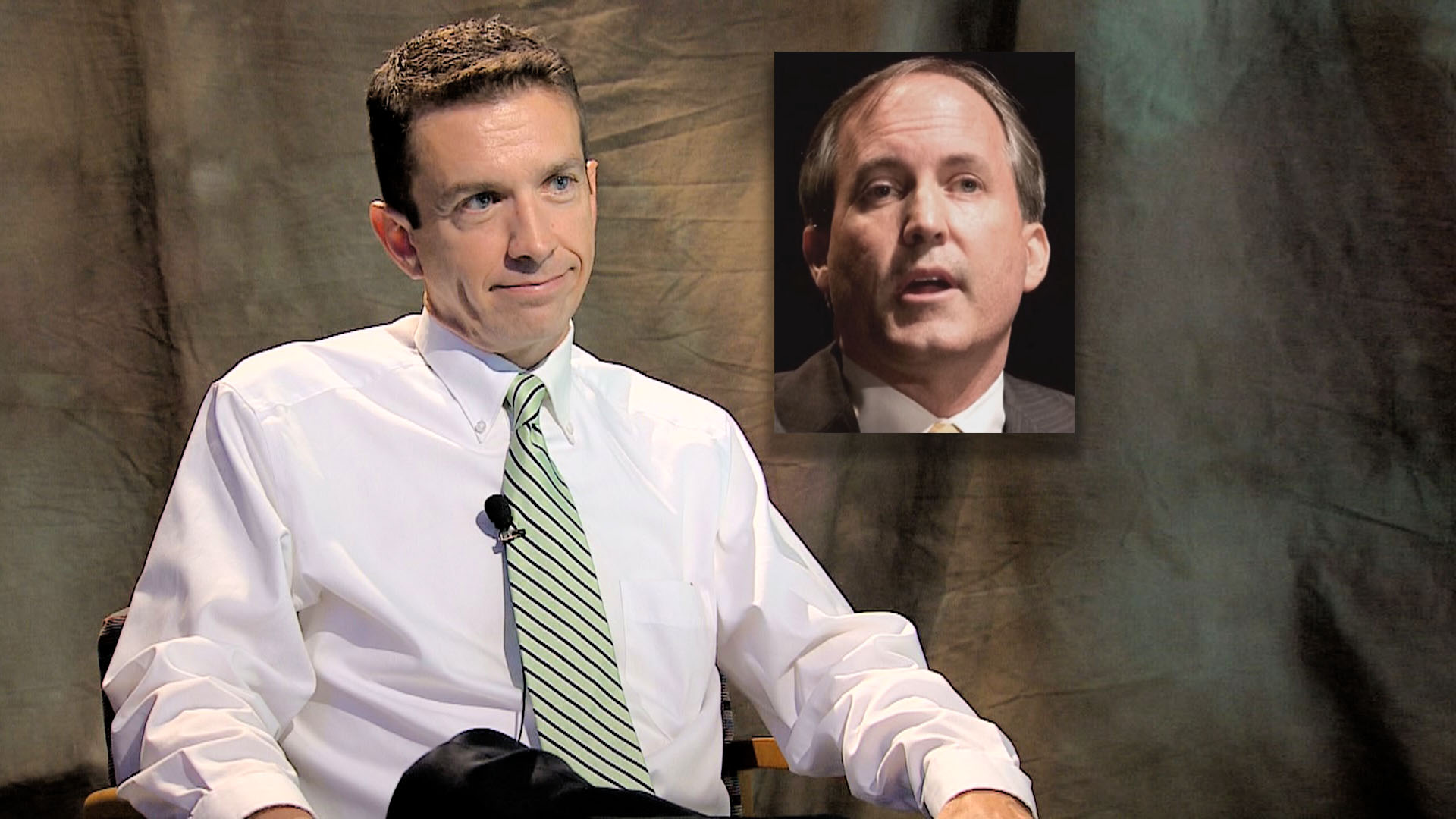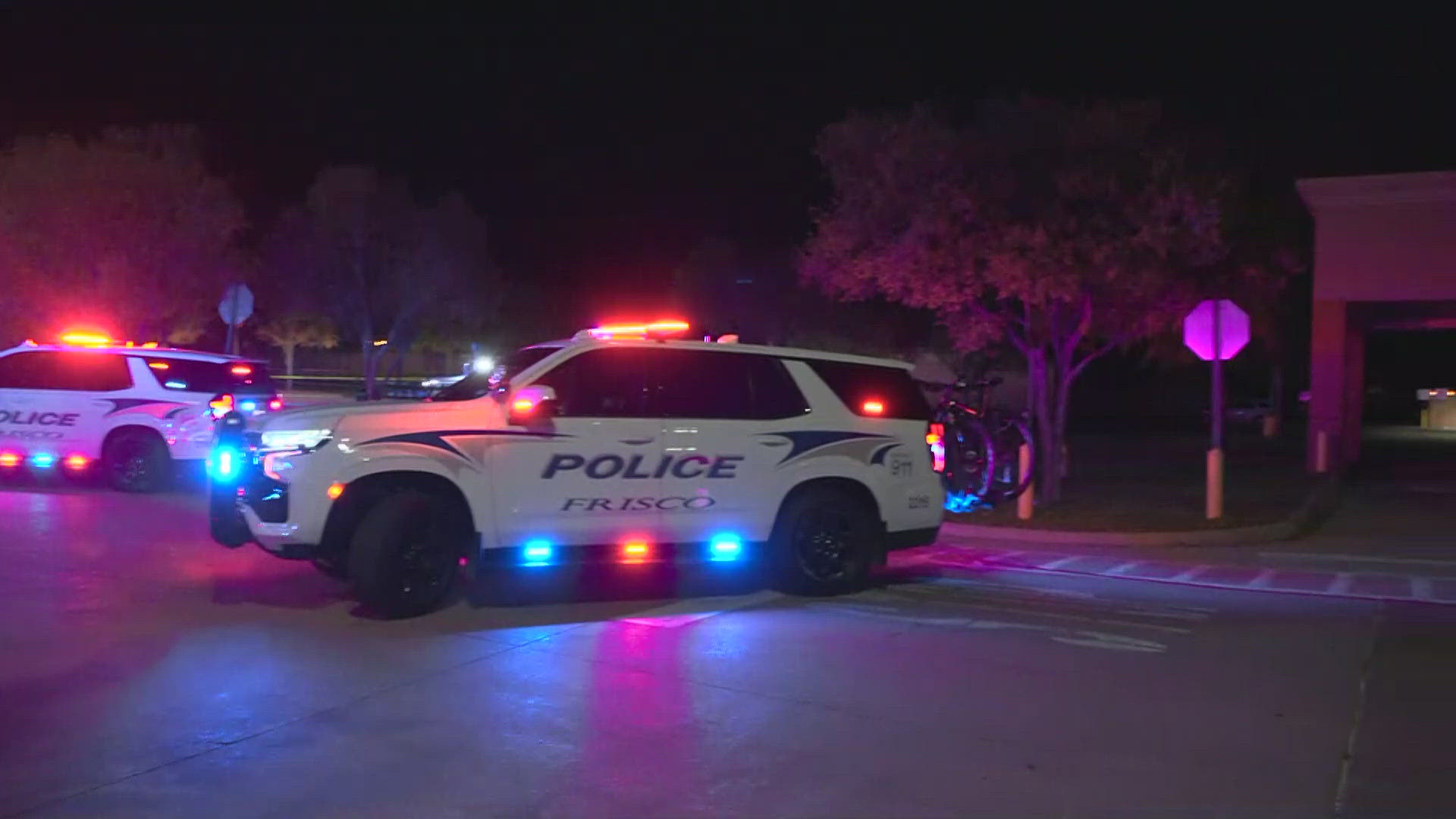Ty Clevenger doesn't know Ken Paxton. He's never even met him.
Yet Clevenger is the Collin County attorney behind an unusual — and, some would say, legally questionable tactic — that the attorney general's lawyers may raise at any future trial.
In two letters back in March, Clevenger directly reached out to grand jurors. He asked them to investigate allegations that Paxton violated state law by failing to register with the state securities board.
Clevenger mailed letters to their homes, places of work, and even went in person deliver his message. Clevenger's actions apparently triggered one grand juror to send a letter to the Travis County District Attorney's office requesting the "investigative" file on Paxton.
"It's unconventional," Clevenger said. "I don't dispute that at all, but 'unconventional' is not wrong or illegal. And if there had not been the avenue of going directly to the grand jury, the investigation would have died."
Legal experts say Clevenger's actions certainly come close to the line, and may even cross the line into improperly trying to influence a grand jury.
"I would think there is an ethical gray area," said Josh Healy, a former Dallas County prosecutor. "At worst for him, I would think there could be some type of crime committed. Obviously, it depends on what was said and what was done. Messing with and harassing a grand juror at their own houses, their individual homes, would not be — in my opinion — the best thing to do."
Clevenger said he grew up in East Texas and moved to Collin County in 2012. He also represents the trooper reprimanded over the highly publicized incident of letting his picture be taken with the rapper Snoop Dogg.
"I've been active in the Republican Party, so I am not part of some left wing conspiracy against Ken Paxton," he said. "I‘m just a solo practitioner."
Clevenger, who also authors the LawFlog blog, maintains that he has done nothing wrong.
He says he got the names of the grand jurors from the Collin County District Clerk's office. Clevenger said he used Google to figure out where some of them worked and to locate e-mail addresses.
He sent the first of his letters dated March 6.
"In other words, the grand jury can investigate and indict Mr. Paxton regardless of what [Collin County District Attorney Greg Willis] does or does not do," Clevenger wrote in that letter. "The grand jury should be aware of the seriousness of the allegations against Mr. Paxton as well as the overwhelming evidence against him."
He attached a copy of the agreed order signed by Paxton, acknowledging that he had violated the law by failing to register with the state securities board as required. Paxton paid a $1,000 fine and called it an "administrative oversight."
Clevenger's letter pointed out that as a member of the Texas House of Representatives in 2003, Paxton had voted for the law to make what he did a third-degree felony.
Clevenger wrote a second letter dated March 21, again requesting a grand jury investigation.
The attorney said he decided to begin sending letters to grand jurors because he believed that the Collin County District Attorney was dragging his feet on launching an investigation into Paxton, his friend and business associate.
"It was clear to me that Greg Willis was trying to block things, and the letter to the grand jury explained that the grand jury can investigate regardless of what the DA does or does not want to do," Clevenger explained.
The Collin County District Attorney's Office declined to comment on Tuesday, but in a statement posted to its website in April, the Willis' office indicated that it had been left in a quandary.
The state securities board had not referred a case to the them, which is what the law requires. The Travis County DA's office also didn't turn over its investigative file to them, as is standard practice.
When neither of those things happened, the DA's office announced in April that it had made a formal request to Travis County and had called in the Texas Rangers. Soon after that, Willis recused himself from the case and a judge appointed two special prosecutors.
Clevenger's letter clearly did have an impact on that grand jury.
In April, a vice grand jury foreman sent a letter to the Travis County DA's office asking them to "forward all related investigative evidence" to the panel. The letter said that after reviewing the "investigative evidence," they may invite "you or your appointed representative to appear before us to answer questions."
That grand jury ultimately expired without that happening.
When the new grand jury was sworn in, Clevenger again requested the names of the grand jurors. He said he was planning to contact them about the Paxton situation.
This time, the judge issued orders to prevent the names of the new grand jurors from being released.
The order stated that "information was received outside the grand jury process and in violation of the laws of the State of Texas." The court order said the grand jurors had been "improperly contacted" at their "residences and places of employment and given information regarding an investigation."
Clevenger is adamant that he did nothing wrong.
"Show me what law I violated... any ethical code, any rule, any law. And they can't do it, because the law says you can do what I did," he said. "There was absolutely no lobbying. That just wasn't what happened."
Healy said there would be nothing wrong with sending a letter to the grand jury as a body, but sending letters to individual members — and most certainly hand-delivering them — is problematic.
"Somebody may need to look into what he did to see if he breached that line of what he is allowed to do by law and what is impermissible by law," Healy said. "I can't fathom going up to a grand juror — whose names are supposed to be secret — in their own personal dwellings and their offices and their lives outside of the grand jury proceeding and trying to hand them any type of correspondence relating to a potential matter."
- MORE: Stories about Ken Paxton


